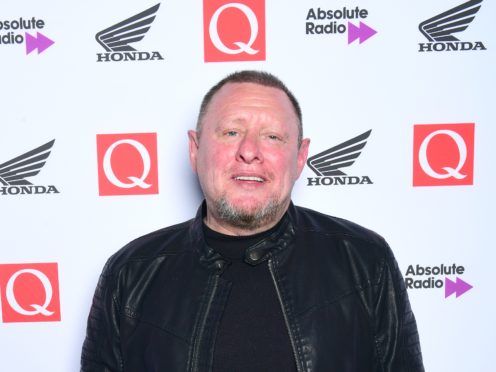Shaun Ryder has revealed he created an alter-ego called X to deal with his crippling anxiety during the Happy Mondays’ heyday.
The singer, 56, said stage fright had caused him to “shrivel up” when the Madchester band first toured in the 1980s.
Speaking on the Elevate Music podcast, Ryder said he had used drugs, including heroin, to relax before playing live.

However, he also said he had created a stage persona called X or Showbiz Shaun which he adopted in front of fans and the press.
The Celebrity Gogglebox star said: “On stage I became X. It was either X or Showbiz Shaun.
“We’ve just done Gogglebox and he’s Bez, not Mark, and I’m X, not Shaun.
“At home I’m not the guy in the band or the kid doing interviews for the music press – that’s X.
“I’m older and wiser and a little bit more grown up. I was an awkward kid, I had a lot to prove to people.
“I still get nervous yeah, but nowhere near. Going on stage now I can own it – there’s really nothing to be frightened of.
“I do enjoy being on stage now. We’re all older and chilled out, all the boyish bullshit that comes along with youth is gone, and the senseless arguments.
“I loved the old days but I also love where I am now.”
Ryder, who no longer takes drugs, said his dyslexia and attention deficit disorder had only made his anxiety worse.
“Heroin became my drug of choice – nothing could touch me,” he said.
“My drug addiction was caused by me being in Manchester in the early 80s when heroin flooded the market and it was easier to get than a bottle of pop.”
He added: “When you’ve heard other musicians or performers talk they go: ‘I really come alive when I go out in front of the crowd and I’m there!’
“And with me it was exactly the opposite, you know. I would just shrivel up.”
The Elevate Music podcast – which aims to inform musicians about the industry’s health and well-being challenges – is supported by the Help Musicians charity and presented by industry researcher Lucy Heyman.
